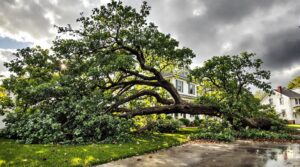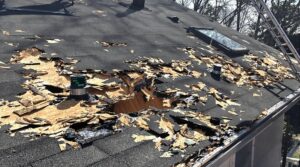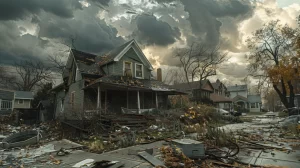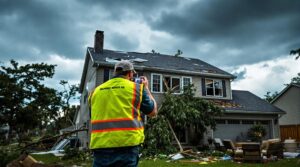Homeowners insurance typically covers storm-related damage to swimming pools from specific perils like wind, hail, and lightning strikes. Coverage extends to structural components, pool liners, tiles, and mechanical systems when directly impacted by covered storm events. However, flood damage requires separate insurance, and claims may be denied due to poor maintenance or preventable damage. Deductibles vary by state and damage severity. Understanding the full scope of coverage and protection options helps pool owners maximize their insurance benefits.
Key Takeaways
- Standard homeowners insurance typically covers storm-related damage to swimming pools caused by high winds, hail, and lightning strikes.
- Flood damage to pools is explicitly excluded from standard homeowners insurance and requires separate flood coverage.
- Insurance claims may be denied if damage results from poor maintenance or failure to properly secure the pool.
- To file a claim, document damage with photos, review policy terms, and contact your insurance provider immediately.
- Additional pool endorsements and umbrella policies can provide enhanced protection beyond standard homeowners insurance coverage.
Types of Storm Damage Covered for Swimming Pools
When severe weather strikes, homeowners insurance typically provides coverage for various types of storm-related damage to swimming pools. Most standard homeowners insurance policies recognize swimming pools as protected structures and offer financial protection against specific covered perils that can occur during storms.
Common types of covered storm damage include destruction caused by high winds, such as debris impact or structural damage to pool components. Hail damage, which can affect pool liners, tiles, and surrounding equipment, also falls under typical coverage. Lightning strikes that harm pool mechanics or electrical systems are generally protected as well.
However, it is important to highlight that storm-induced flooding damage is specifically excluded from standard homeowners insurance policies. Pool owners must carefully review their policy documentation to understand the exact scope of their coverage, as protection levels can vary between insurance providers.
Prompt damage assessment and documentation following a storm event are essential for successful claims processing. Consulting with a public adjuster can significantly increase settlement amounts for complex pool damage claims, with some cases showing up to 500% higher payouts.
Exclusions and Limitations for Pool Storm Coverage
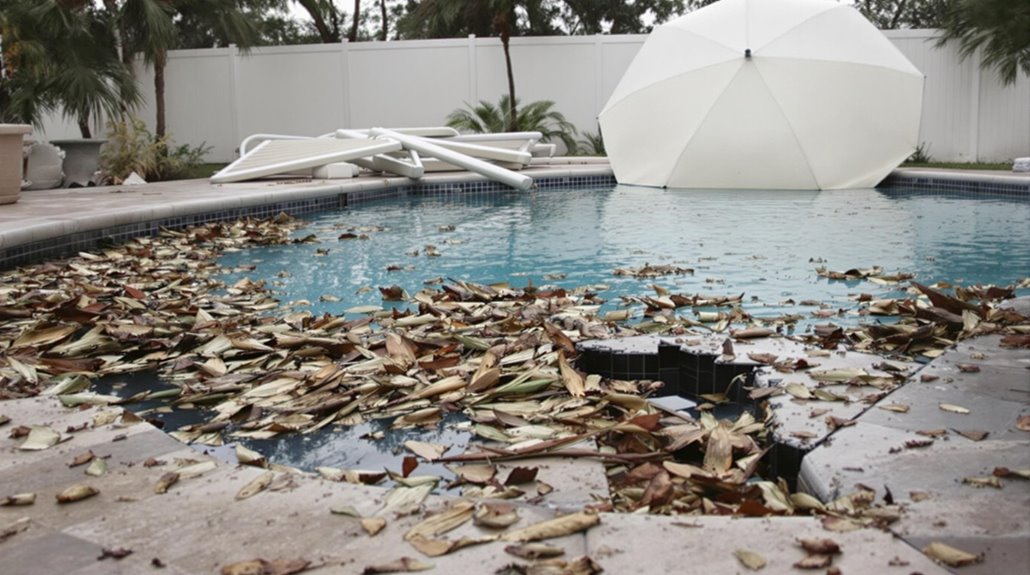
Although homeowners insurance provides coverage for many types of pool storm damage, significant exclusions and limitations apply to these policies. Insurance claims may be denied if damage results from poor maintenance or failure to properly secure the pool before a storm. A standard home insurance policy typically excludes flood-related damage unless separate flood coverage is purchased.
| Coverage Type | Typically Covered | Common Exclusions |
|---|---|---|
| Wind Damage | Yes – as covered peril | Preventable damage |
| Hail Impact | Yes – structural damage | Wear and tear |
| Flood Damage | No – separate policy needed | Rising water damage |
| Storm Debris | Yes – with limitations | Pre-existing damage |
Policyholders should note that coverage classification affects claim outcomes, depending on whether the pool is considered part of the main dwelling, an unattached structure, or personal property. Additionally, specific deductibles for storm-related claims vary by state and damage severity, potentially impacting out-of-pocket expenses when filing a claim. Understanding dwelling coverage limits is crucial when assessing potential protection for attached pool structures.
Steps to File a Pool Storm Damage Claim
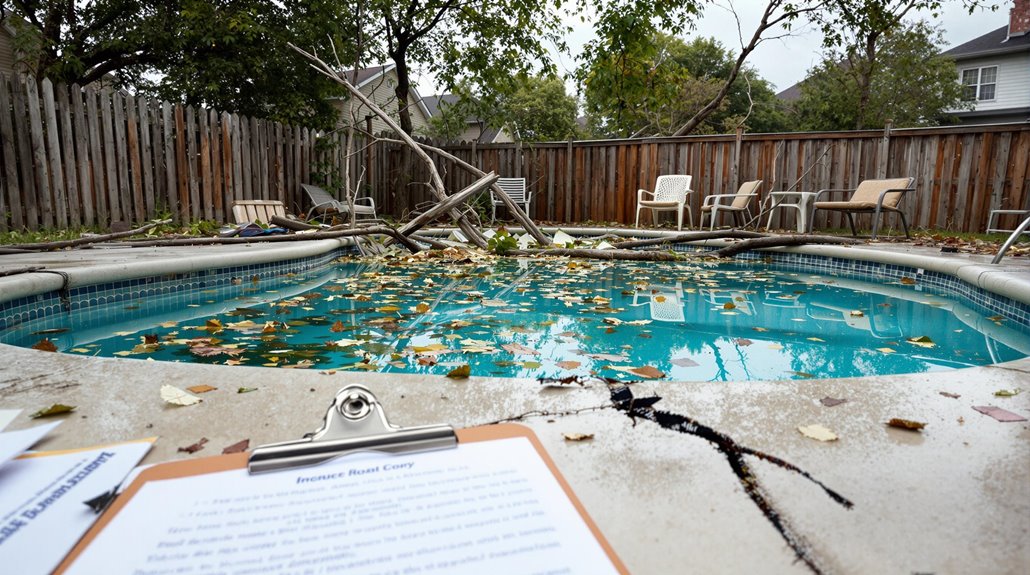
Filing an insurance claim for pool storm damage requires a systematic approach to guarantee proper compensation and timely resolution.
When severe weather causes destruction to your pool, understanding the proper steps to file a homeowners insurance claim is vital for a successful outcome. Property owners must act swiftly to document the damage and initiate the claims process within their policy’s specified timeframe. Keeping a detailed record of the damage, such as photographs and written descriptions, can significantly strengthen your case when submitting your claim. It’s also crucial to review your policy to understand what types of storm damage are covered, as specific exclusions may apply. For more clarity, many homeowners turn to resources that provide guidance, such as “storm damage insurance claims explained,” ensuring they follow the correct procedures to receive the compensation they deserve.
- Conduct an immediate assessment of pool storm damage and capture detailed photographs of all visible issues.
- Review your homeowners insurance policy to understand coverage terms and applicable deductibles.
- Contact your insurance provider promptly to report the damage and begin the claims process.
- Submit thorough documentation, including photos and repair estimates.
- Maintain regular communication with your insurance adjuster throughout the claims process.
Following these essential steps helps guarantee your pool damage claim is handled efficiently and increases the likelihood of receiving appropriate compensation for covered storm-related repairs.
Safety Measures to Protect Pools During Storms
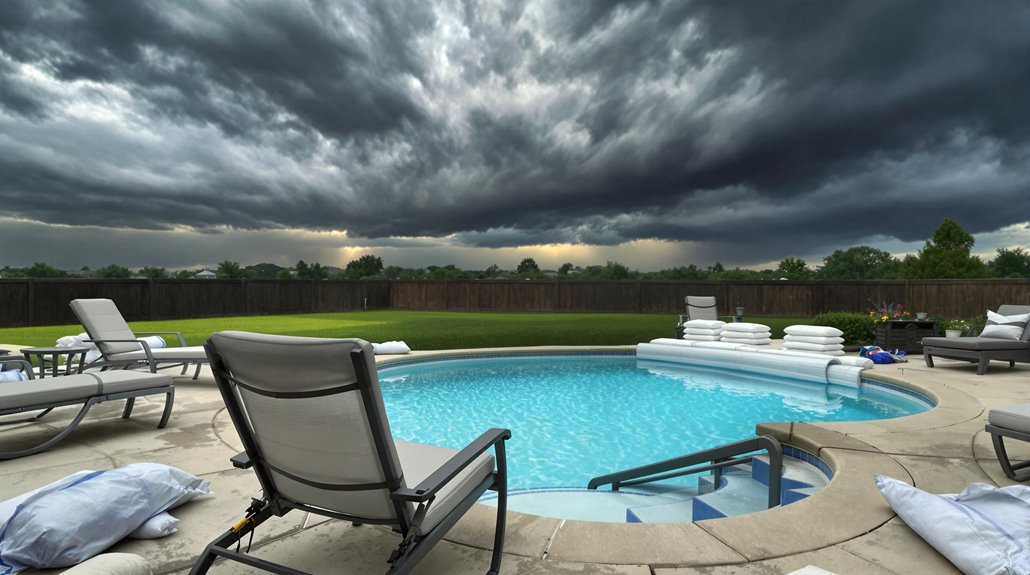
Proactive preparation is essential for safeguarding swimming pools against severe weather conditions. Pool owners should implement several key safety measures to minimize potential storm damage and protect their investment.
Installing a high-quality safety cover designed for storm conditions provides critical protection against debris and heavy rainfall.
Additionally, securing all loose pool equipment and furniture prevents these items from becoming dangerous projectiles during severe weather. Regular maintenance of trees and shrubs surrounding the pool area, including proper trimming, reduces the risk of falling branches causing pool damage.
A well-maintained pool pump system plays an important role in managing water levels during storms, preventing flooding and ensuring proper drainage.
Property owners should also conduct regular inspections of pool components, including fittings, liners, and structural elements, to identify and address potential vulnerabilities before severe weather strikes.
These preventive measures greatly reduce the likelihood of extensive storm-related damage and subsequent costly repairs.
Additional Insurance Options for Enhanced Pool Protection

While standard homeowners insurance provides basic coverage for pool-related incidents, property owners can greatly enhance their protection through additional insurance options.
Homeowners should carefully evaluate their existing coverage and assess supplementary protection to guarantee thorough pool coverage against storm damage and liability risks.
Key additional insurance options to assess:
- Umbrella insurance policies that extend liability coverage beyond the standard homeowners policy limits
- Specialized pool endorsements or riders that address specific storm-related perils
- Enhanced coverage options with adjustable deductibles for storm damage
- Additional liability coverage specifically designed for pool-related incidents
- Customized policy add-ons that cover pool equipment and accessories
Insurance professionals recommend reviewing current policies to identify potential coverage gaps and determine which additional insurance options best suit individual needs.
Understanding personal liability coverage helps homeowners make informed decisions about protecting their pool investments against potential accidents and lawsuits.
Frequently Asked Questions
Will Home Insurance Cover Pool Damage?
Homeowners insurance covers pool damage caused by covered perils, with proper pool maintenance tips and storm preparation strategies being essential. Insurance policy review determines specific coverage for above-ground and in-ground pools.
What Type of Water Damage Is Not Covered by Insurance?
Studies show 90% of water damage claims are denied when caused by flood damage, regular maintenance issues, or equipment failure due to neglect. Insurance also excludes sewer backups without special coverage.
Do I Need to Tell Home Insurance About a Pool?
Homeowners must inform their insurance company about pool installations as part of basic pool insurance requirements. Failing to update insurance policies can void coverage and leave owners liable for accidents or property damage.
What Storm Damage Is Covered by Insurance?
Crashing hail, howling winds, and crackling lightning strikes typically receive coverage under standard insurance policy limits. However, flooding damage requires separate insurance, as it's excluded from basic storm damage protection.
Final Thoughts
While standard homeowners insurance typically covers sudden and accidental pool damage from storms, policyholders must understand their specific coverage limits and exclusions. Although some may argue that pool coverage is unnecessary in less storm-prone regions, the unpredictable nature of weather events makes protection vital. Regular maintenance, proper documentation, and consideration of additional coverage options guarantee thorough protection for this valuable home investment.
For homeowners dealing with pool damage or any other property damage claims under their homeowners insurance policy, insurance industry professionals and legal experts strongly advise consulting a qualified state-licensed public adjuster. These professionals work exclusively for policyholders, not insurance companies, serving as dedicated advocates throughout the claims process.
Public adjusters are state-licensed professionals who help policyholders navigate complex insurance policies, identify hidden damages often unknown to property owners, thoroughly document losses, and negotiate with insurance companies to secure fair settlements. Their expertise ensures that policyholder rights are protected and policy benefits are maximized during the claims process.
Working with a public adjuster typically results in higher claim settlements, faster claim resolution, and reduced stress for property owners. Policyholders can request a no-obligation free consultation with a Public Claims Adjusters Network (PCAN) member public adjuster to discuss their property damage or loss claims.
